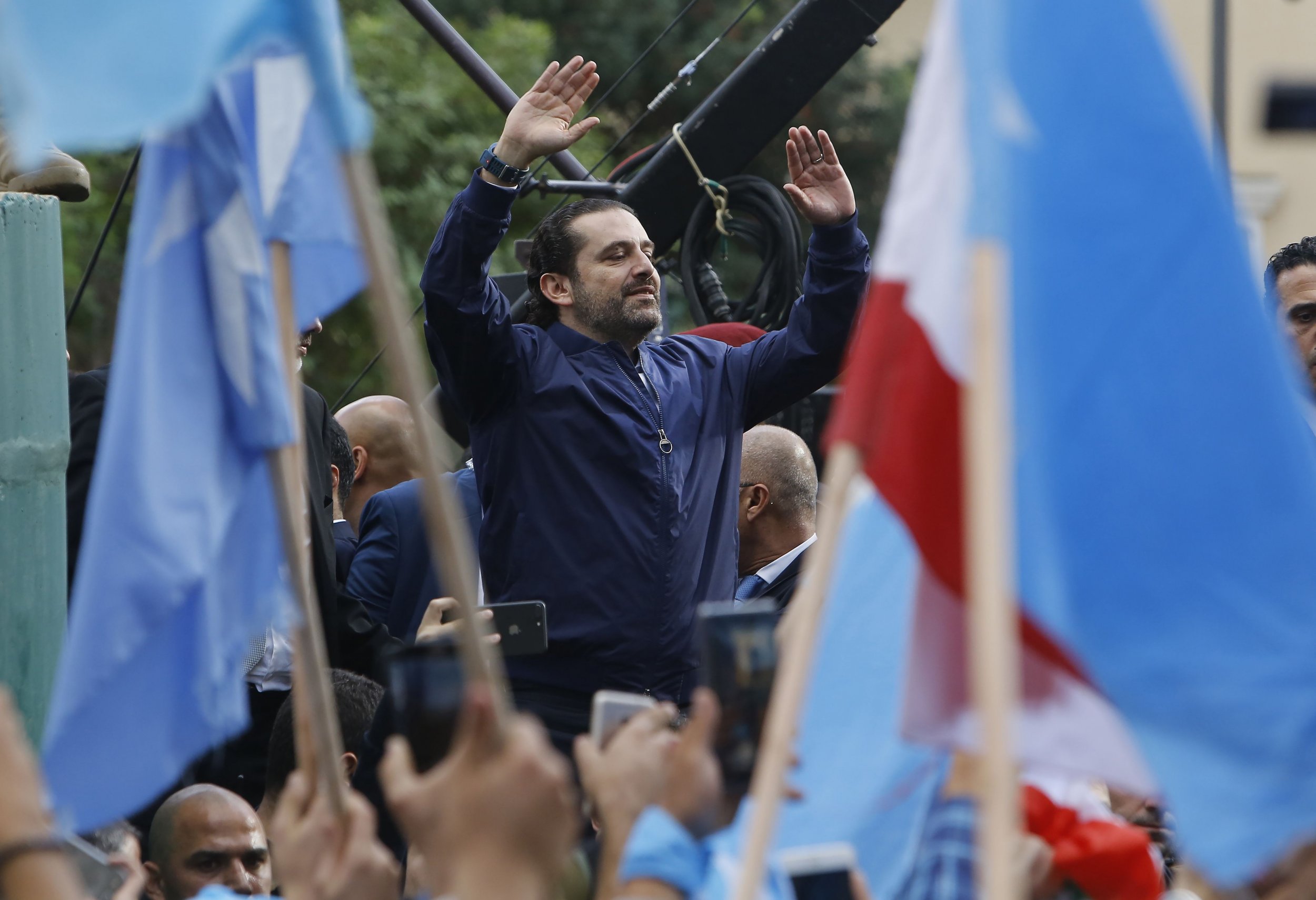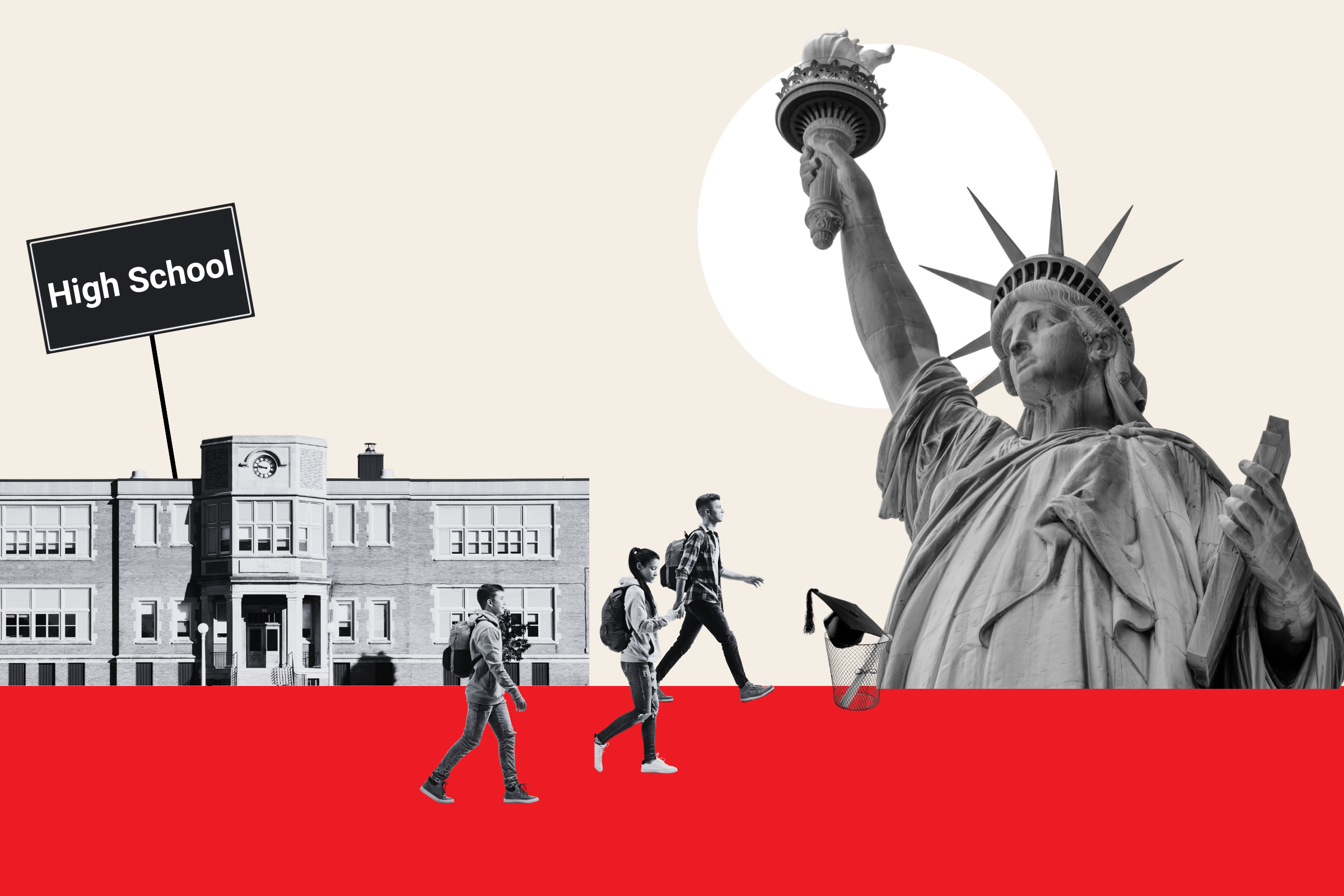
Saad Hariri has finally returned to Lebanon.
Two weeks ago, Hariri intentionally shocked his country by abruptly resigning in a televised speech from Saudi Arabia, attacking Hezbollah and Iran for undermining Lebanon's sovereignty and hinting they had plotted his assassination. Yet by Tuesday evening last week, he was back home for Lebanon's 74th Independence Day, and had agreed to "suspend" his resignation at President Michel Aoun's request.
In retrospect, Hariri's actions seem to be setting the stage for a political resurgence in Lebanon's upcoming parliamentary elections, and initiating a regional effort to counter Iran and its "Resistance Axis."
Hariri's dramatic resignation arose from an awareness that he no longer inspires the confidence of his Lebanese Sunni base, and that will cost him in parliament—his pro-Western camp's last holdout—in the upcoming May 2018 elections. For over a decade, he's been consistently outmaneuvered by Hezbollah and its political allies even while in power. Worse yet, his concessions over the last two years have made him look like a polite fig-leaf for creeping Iranian domination of Lebanon, further eroding his Sunni support—a fact he bemoaned in a recent interview from Riyadh.
It was Hariri, after all, who crowned Hezbollah-allied Michel Aoun as president in October 2016. This was after fracturing his March 14 alliance by endorsing ideologically pro-Syrian and pro-Hezbollah Sleiman Frangieh over his own political camp's nominee almost a year earlier. Hariri also agreed to reassume the premiership over a cabinet dominated by Hezbollah and his allies, with his own March 14 partners taking either junior ministries or entirely out of government.
Hariri swallowed that bitter pill to end Lebanon's then two-year presidential vacuum, which was benefiting Hezbollah by paralyzing the country and delegitimizing its institutions. He also likely thought the opportunist Aoun would at least curtail the Shiite group's most egregious activities and keep Lebanon regionally neutral—either out of a sense of patriotic duty, or even debt to Hariri.
But, a year later, Hariri saw that gamble had clearly failed. Aoun—the former Lebanese Army general—wouldn't even respond to his Iranian counterpart belittling Lebanese sovereignty late last month, let alone limit Hezbollah.
Hariri's Future Party is currently parliament's largest—with 28 of 128 seats. With his broader allies, he theoretically has a slim majority. However, that is a holdover from the country's last parliamentary elections in 2009. With his eroded credibility and Lebanon's new electoral law placing a higher premium than before on popular support, he's guaranteed to lose it the 2018 elctions. Given parliament's power of electing the president and confirming the prime minister and his cabinet, it is a particularly important body to lose.
To even maintain that gap, he had to regain his Sunni base's confidence that he is the rightful heir to Rafik Hariri—the initial reason why they supported him—and demonstrate that March 14 remains able to live up to the ideals of the Cedar Revolution, namely upholding Lebanon's sovereignty against foreign interference. Hence his uncharacteristically forceful resignation and direct attack on Hezbollah and Iran, and implicit attack on Aoun's acquiescence to their violation of Lebanese sovereignty.
The move was also a message to Hezbollah's political allies, that they could no longer count on him as their palatable emissary to the West or Gulf States if they did not make their own concessions and steer Lebanon's foreign policy back towards regional neutrality.
It has worked so far. The Lebanese street exploded with support for Hariri during his absence, and he has even attempted to capitalize on that abroad by encouraging Lebanese expatriates to vote in the upcoming elections.
Whether his gambit will succeed in the long run, however, remains to be seen. Hezbollah has been attempting to blunt the effect of Hariri's move from the outset, framing it as a Saudi-ordered initiative to an unwilling Hariri. It has even painted his return to Lebanon as a French and Egyptian-brokered deal with Riyadh. Behind the feigned concern for Hariri's fate and the honor of his Future Party is an implicit message: Hariri is weak and would never counter Hezbollah unless forced by Riyadh, and thus undeserving of renewed Sunni confidence.
Now, it is a battle of messages, and whether Hariri remains credible—in the eyes of his supporters or opponents—depends on him maintaining his more hardline stance.
Hariri's maneuvering and threatened resignation must also be understood as part of a regional attempt to solidify and embolden a Sunni constituency to counter Hezbollah and its patron, Iran. Lebanon's political turmoil immediately preceded and overlapped with the fall of ISIS' last urban stronghold in Syria, Abu Kamal, to the Iranian-dominated Resistance Axis.
As both Hezbollah Secretary General Hassan Nasrallah and Islamic Revolutionary Guard Corps' (IRGC) Quds Force commander Qassem Soleimani were declaring victory and preparing for continuing Iran's regional expansion, the Arab League signaled that its attention was now focused on countering an unimpeded Tehran. The League followed up immediately with a resolution condemning Hezbollah as a terror group, signaling that Beirut was not up for grabs.
When Hariri met with Ali Akbar Velayati, the supreme leader's chief foreign policy advisor, in Beirut before he traveled to Riyadh, Velayati pointedly requested Hariri to mediate between Saudi Arabia and Iran—in essence, creating the same win-win regional formula of "sharing the neighborhood" with Riyadh that Tehran has been pushing in all manner of international forums.
However, the Hariri melodrama was a signal that Saudi Arabia and its Arab allies view competition with Iran as a zero-sum game—a fight the hearts, minds, and soul of the Middle East. It was a warning shot to Iran that it better not rest on the laurels of its newly empowered position.
Consolidation and confrontation, rather than complacency and accommodation, is going to be the posture moving forward in Lebanon.
Jason M. Brodsky is the policy director of United Against Nuclear Iran (UANI), where David Daoud is a research analyst on Lebanon and Hezbollah.
Uncommon Knowledge
Newsweek is committed to challenging conventional wisdom and finding connections in the search for common ground.
Newsweek is committed to challenging conventional wisdom and finding connections in the search for common ground.
About the writer
To read how Newsweek uses AI as a newsroom tool, Click here.





